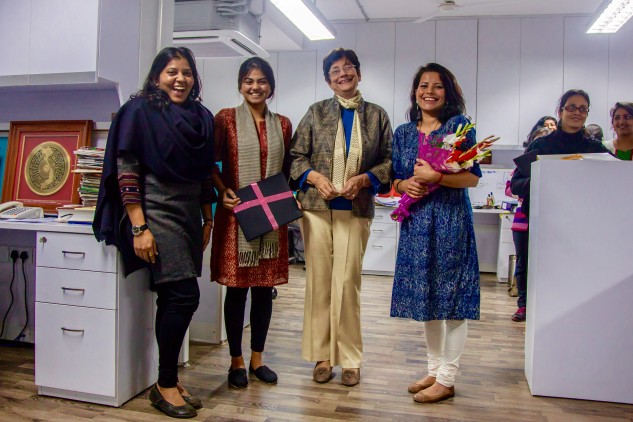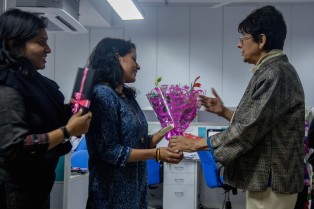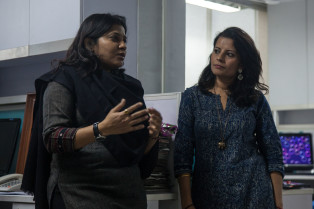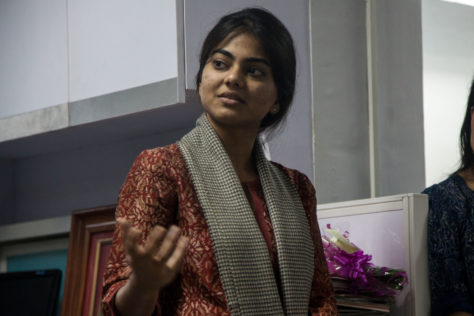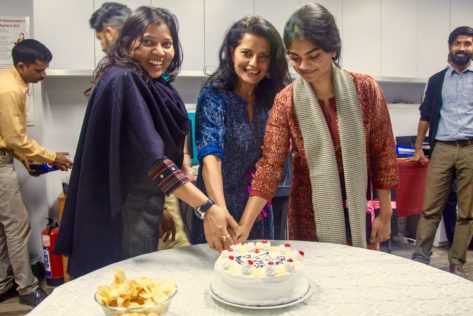Post
Nazdeek Receives Justice Prize from Legal Empowerment Network
At a small ceremony in New Delhi the winners of the inaugural global Namati Justice Prize received the Achmed Sesay Memorial Prize for great deeds in legal empowerment.
The winner’s certificate was handed over to two of Nazdeek’s founders, Sukti Dhital and Jayshree Satpute, and Avantee Bansal, Nazdeek’s justice program associate by Maja Daruwala. Maja is a member of the Network Guidance Committee of the Global Legal Empowerment Network. She is also executive director of the Commonwealth Human Rights Initiative (CHRI). CHRI hosted the event in its New Delhi offices on behalf of Namati and the Network.
Nazdeek’s executive director, Sukti Dhital, said: “We are humbled. What started as an idea for grassroots justice over 3 years ago has evolved into an organization committed to using legal empowerment to address the world’s most urgent problems: maternal mortality, malnutrition, low wages and poverty.”
“Today, as a result of trainings with grassroots activists who are leading a campaign for higher wages, the minimum wage for more than 1 million tea garden workers in Assam is set for a historic increase. Today, a collective of 30 women paralegals using only their mobile phones and their knowledge of the law, have secured ambulances, medical personnel, and access to nutrition and medicine for pregnant women in their communities. Today, due to international advocacy and awareness, consumers are beginning to demand transparency in the global supply chain for tea.”
“There is no way we could have done this alone. We thank the tireless work of our paralegals, grassroots partners from organizations such as PAJHRA, AASAA, PAD, and the numerous volunteers who have walked this journey with us. We thank Namati and their institutional partners BRAC, UNDP and the World Justice Project for promoting the first ever Justice Prize.”
“Inspired by the words and actions of the late Achmed Sesay, the $10,000 Justice Prize will strengthen Nazdeek’s commitment to bringing justice closer to marginalized communities in real, tangible ways.”
The Global Legal Empowerment Network brings together over 500 organizations and 2,600 individuals, all dedicated to grassroots justice. It is comprised of lawyers and community paralegals, human rights activists and grassroots organizers, health advocates and educators, researchers, journalists and public servants. It collaborates across regions and across disciplines.


